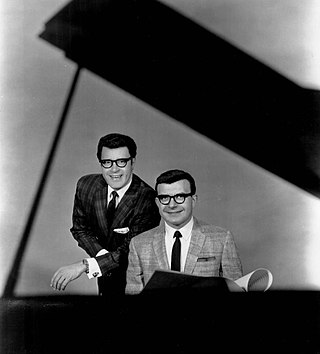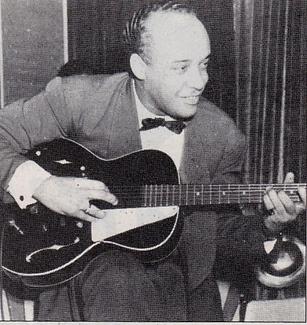Related Research Articles

Børge Rosenbaum, known professionally as Victor Borge, was a Danish-American comedian and pianist who achieved great popularity in radio and television in both North America and Europe. His blend of music and comedy earned him the nicknames "The Clown Prince of Denmark", "The Unmelancholy Dane", and "The Great Dane".

Columbia Records is an American record label owned by Sony Music Entertainment, a subsidiary of Sony Corporation of America, the North American division of Japanese conglomerate Sony. It was founded on January 15, 1889, evolving from the American Graphophone Company, the successor to the Volta Graphophone Company. Columbia is the oldest surviving brand name in the recorded sound business, and the second major company to produce records. From 1961 to 1991, its recordings were released outside North America under the name CBS Records to avoid confusion with EMI's Columbia Graphophone Company. Columbia is one of Sony Music's four flagship record labels: Epic Records, and former longtime rivals, RCA Records and Arista Records as the latter two were originally owned by BMG before its 2008 relaunch after Sony's acquisition alongside other BMG labels.

Willie Gary "Bunk" Johnson was an American prominent jazz trumpeter in New Orleans. Johnson gave the year of his birth as 1879, although there is speculation that he may have been younger by as much as a decade. Johnson stated on his 1937 application for Social Security that he was born on December 27, 1889. Many jazz historians believe this date of birth to be the most accurate of the various dates Johnson gave throughout his life.

James Melvin Lunceford was an American jazz alto saxophonist and bandleader in the swing era.

William Ballard Doggett was an American pianist and organist. He began his career playing swing music before transitioning into rhythm and blues. Best known for his instrumental compositions "Honky Tonk" and "Hippy Dippy", Doggett was a pioneer of rock and roll. He worked with the Ink Spots, Johnny Otis, Wynonie Harris, Ella Fitzgerald, and Louis Jordan.

The Four Lads were a Canadian male singing quartet that earned many gold singles and albums in the 1950s, 1960s, and 1970s. Their million-selling signature tunes include "Moments to Remember"; "Standing on the Corner"; "No, Not Much"; "Who Needs You?" and "Istanbul".

Ten Years After are a British blues rock group, most popular in the late 1960s and early 1970s. Between 1968 and 1973, the band had eight consecutive Top 40 albums on the UK Albums Chart. In addition, they had twelve albums enter the US Billboard 200. They are best known for tracks such as "I'm Going Home", "Hear Me Calling", "I'd Love to Change the World" and "Love Like a Man".
A cast recording is a recording of a stage musical that is intended to document the songs as they were performed in the show and experienced by the audience. An original cast recording or OCR, as the name implies, features the voices of the show's original cast. A cast recording featuring the first cast to perform a musical in a particular venue is known, for example, as an "original Broadway cast recording" (OBCR) or an "original London cast recording" (OLCR).

"Man or Astro-man?" is an American surf rock group that was formed in Auburn, Alabama in the early 1990s and came to prominence over the following decade.

Seven Steps to Heaven is the eighth studio album on Columbia Records by jazz musician Miles Davis, released in 1963, catalogue CL 2051 and CS 8851 in stereo. Recorded at Columbia's 30th Street Studios in Manhattan, and at Columbia Studios in Los Angeles, in sessions recorded in April of 1963, and May of 1963. It presents the Miles Davis Quintet in transition, with the New York session introducing the rhythm section of Herbie Hancock, Ron Carter and Tony Williams, who would become Davis' regular sidemen for the next five years. Upon release, the album was Davis' most successful on the Billboard pop LPs chart up to that point, peaking at number 62.

Andre Kostelanetz was a Russian-born American popular orchestral music conductor and arranger who was one of the major exponents of popular orchestra music.
"Makin' Whoopee" is a jazz/blues song, first popularized by Eddie Cantor in the 1928 musical Whoopee!. Gus Kahn wrote the lyrics and Walter Donaldson composed the music for the song as well as for the entire musical.

Ferrante & Teicher were a duo of American pianists known for their clever arrangements of familiar classical pieces, movie soundtracks, and show tunes, as well as their signature style of florid, intricate, and fast-paced piano playing performances.

Art Van Damme was an American jazz accordionist.

Judy Garland signed her first recording contract at age 13 with Decca Records in late 1935. Garland began recording albums for Capitol Records in the 1950s. Her greatest success, Judy at Carnegie Hall (1961), was listed for 73 weeks on the Billboard 200 chart, was certified Gold, and took home five Grammy Awards.
A spoken word album is a recording of spoken material, a predecessor of the contemporary audiobook genre. Rather than featuring music or songs, the content of spoken word albums include political speeches, dramatic readings of historical documents, dialogue from a film soundtrack, dramatized versions of literary classics, stories for children, comedic material, and instructional recordings. The Grammy for Best Spoken Word Album has been awarded annually since 1959.

Floyd George Smith, sometimes credited as Floyd "Guitar" Smith, was an American jazz guitarist and record producer.

The Great Songs from "My Fair Lady" and Other Broadway Hits is the fifteenth studio album by American pop singer Andy Williams and was released in September 1964 by Columbia Records, one month before the premiere of the film version of My Fair Lady starring Audrey Hepburn.

Frank G. Comstock was an American composer, arranger, conductor, and trombonist. For television, Comstock wrote and arranged music for major situation comedies and variety shows; his theme and incidental music for Rocky and His Friends (1959–1964) are probably his best-remembered works. Additionally, his music for Adam-12 earned him a 1971 Emmy nomination.

Christmas Eve with Johnny Mathis is the fourth Christmas album by American pop singer Johnny Mathis that was released on September 23, 1986, by Columbia Records. This was Mathis's fourth holiday-themed LP and focused exclusively on secular material.
References
- ↑ Young, Mark (2 March 1998). The Guinness Book of World Records 1998. Bantam Books. p. 439. ISBN 978-0-553-57895-9 . Retrieved 20 February 2013.